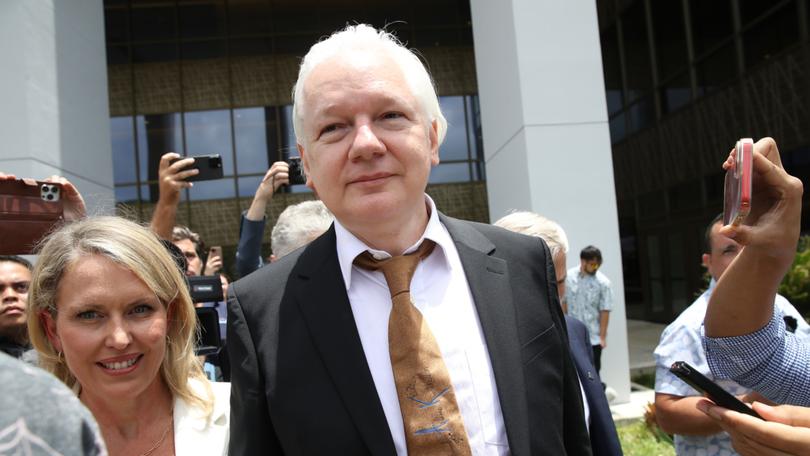Julian Assange says he ‘pleaded guilty to journalism’ in first public statement since his release from prison
WikiLeaks founder Julian Assange has said he ‘pleaded guilty to journalism’ in his first public statement since he was released from prison in June.

WikiLeaks founder Julian Assange has said he “pleaded guilty to journalism” in his first public statement since he was released from prison.
In an address to the Council of Europe in France, Assange gave evidence to the committee on his detention and conviction and their effects on human rights.
“I am not free today because the system worked,” he said.
Sign up to The Nightly's newsletters.
Get the first look at the digital newspaper, curated daily stories and breaking headlines delivered to your inbox.
By continuing you agree to our Terms and Privacy Policy.“I am free today after years of incarceration because I pleaded guilty to journalism. I pleaded guilty to seeking information from a source.
“I pleaded guilty to obtaining information from a source, and I pleaded guilty to informing the public what that information was.
“I did not plead guilty to anything else. I hope my testimony today can serve to highlight the weakness, the weaknesses of the existing safeguards, and to help those whose cases are less visible, but who are equally vulnerable.”
The appearance follows the publication of an inquiry report by the parliamentary assembly into Assange’s detention in Britain’s Belmarsh Prison for five years. He had previously spent seven years in the Ecuadorian Embassy in London after requesting asylum.
The 53-year-old was released from Belmarsh Prison in June after he pleaded guilty to obtaining and publishing US military secrets.
During his address, he spoke on the “surreal shift” from a maximum security prison to speaking at the committee.
“The transition from years of confinement in a maximum security prison to being here before the representatives of 46 nations and 700 million people is a profound and surreal shift,” he said.
“The experience of isolation for years in a small cell is difficult to convey. It strips away one’s sense of self, leaving only the raw essence of existence.
“I am yet not fully equipped to speak about what I have endured, the relentless struggle to stay alive, both physically and mentally.”
He went on to say the CIA “drew up plans to kidnap and to assassinate me” as well as claiming “a CIA asset was permanently assigned to track my wife, and instructions were given to obtain DNA from my six-month-old son’s nappy”.
Assange finished by saying journalists should not be prosecuted for doing their jobs.
“The fundamental issue is simple: journalists should not be prosecuted for doing their jobs. Journalism is not a crime, it is a pillar of a free and informed society,” he said.
Assange’s freedom in June followed a court appearance before a judge in the US territory of the Northern Mariana Islands in the Pacific, where he pleaded guilty to a single charge after the US dropped 17 other espionage charges against him.
Because of the five years he spent in Belmarsh Prison, mainly in solitary confinement, Assange was told he was free to leave.
with AAP
